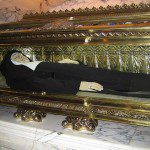
From: Max Pixel / FreeGreatPicture.com [CC0 public domain]
*****
2 Corinthians 4:15 (RSV) For it [his many sufferings: 4:8-12,17] is all for your sake, so that as grace extends to more and more people it may increase thanksgiving, to the glory of God.
Ephesians 3:2 assuming that you have heard of the stewardship of God’s grace that was given to me for you…
Ephesians 4:29 Let no evil talk come out of your mouths, but only such as is good for edifying, as fits the occasion, that it may impart grace to those who hear.
Romans 11:13-14 Now I am speaking to you Gentiles. Inasmuch then as I am an apostle to the Gentiles, I magnify my ministry in order to make my fellow Jews jealous, and thus save some of them.
1 Corinthians 9:22 I have become all things to all men, that I might by all means save some.2 Corinthians 1:6 If we are afflicted, it is for your comfort and salvation; . . .
2 Timothy 2:10 Therefore I endure everything for the sake of the elect, that they also may obtain salvation in Christ Jesus with its eternal glory.
**Is the Rosary “Vain Repetition”? [5-24-16]*Is the Rosary Christ-Centered? [5-25-16]
Mary, the mother of our Lord, would slap you silly if she knew that you prayed to her instead of through her Son. Nothing in Scripture suggests or implies that she, or the rest of the saints who have gone before, can hear you — but only Christ who stands before the Father. And we have only one Father, and one Lord and Savior Jesus Christ, both from whom the Spirit proceeds.
What’s wrong with asking Christ to intercede for us — He who is our mediator as we read in Scripture — He who is our High Priest and the One who stands before the Father for our sakes? Is this insufficient?
James 5:14 Is any among you sick? Let him call for the elders of the church, and let them pray over him . . .
So we apply that to the saints in heaven, because they have far more power than anyone on earth: having been perfected in glory. We know that they pray for us (even your Lutheran Confessions concede that). We know that they are acutely interested in the affairs of earth, from Hebrews 12:1 (“we are surrounded by so great a cloud of witnesses”): which commentators have explained as like a stadium of spectators watching us. Therefore, we ask them to pray for us, because we know that their prayers (like Elijah’s) have more power than ours.
Related Reading:
*
Why Pray to Saints Rather than God? [9-4-15]
Reply to a Lutheran Pastor on Invocation of Saints [12-1-15]
Dialogue on Praying to Abraham (Luke 16) [5-22-16]
Prayer to Saints: “New” [?] Biblical Argument [5-23-16]
“Armstrong vs. Geisler” #5: Prayer to Creatures [2-20-17]
Dialogue: Rich Man’s Prayer to Abraham (Luke 16) and the Invocation of Saints (vs. Lutheran Pastor Ken Howes) [5-3-17]













